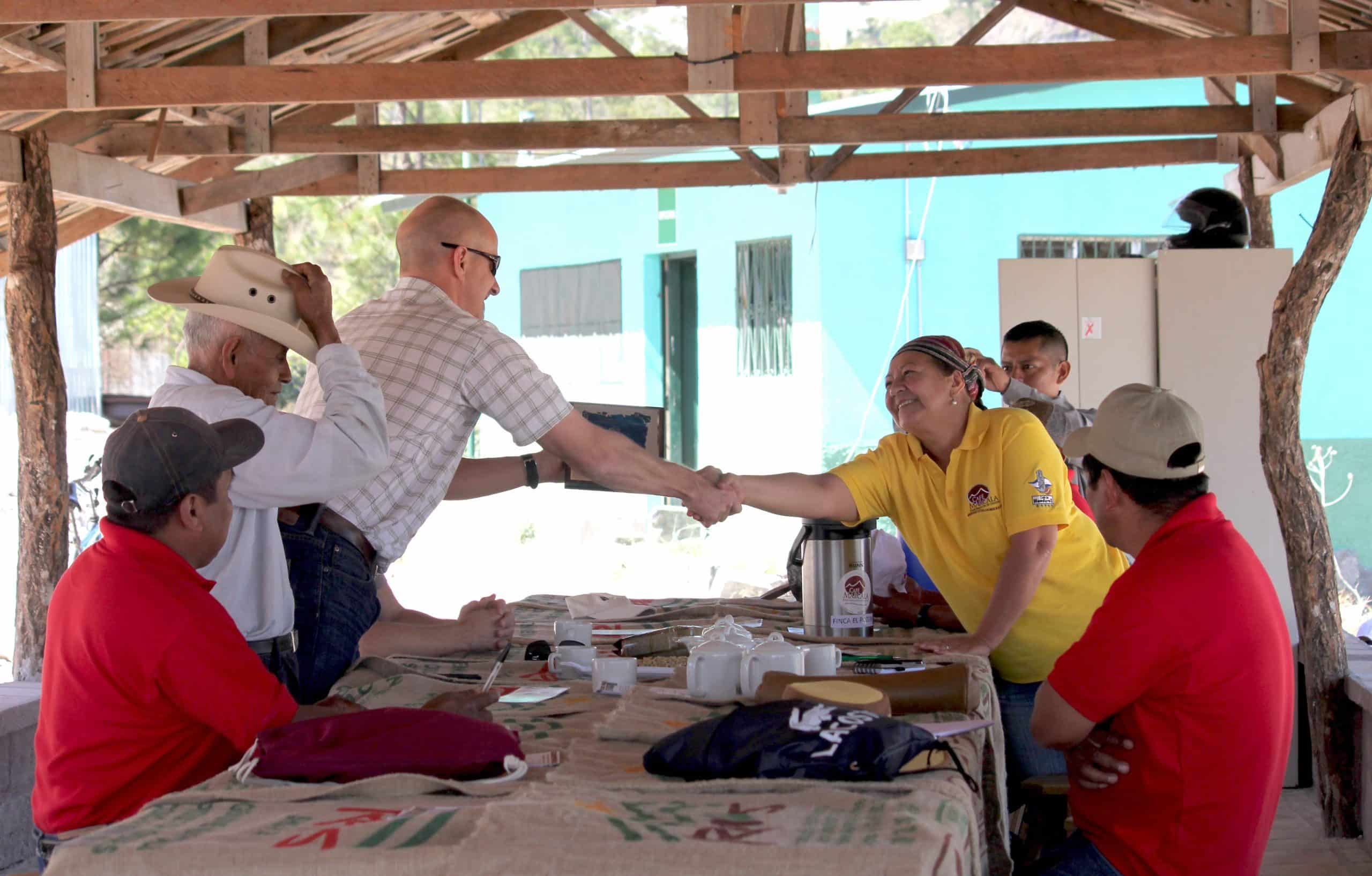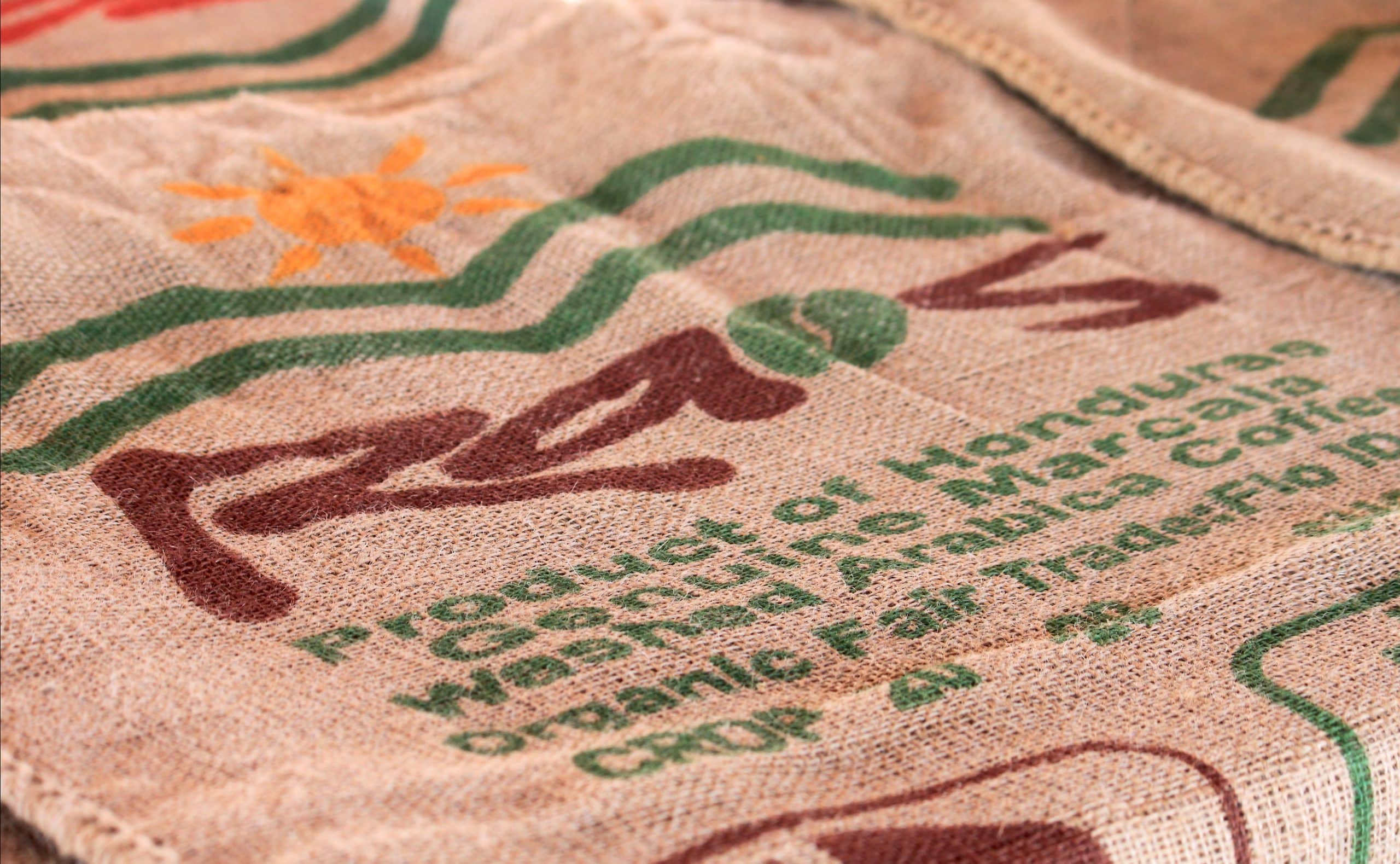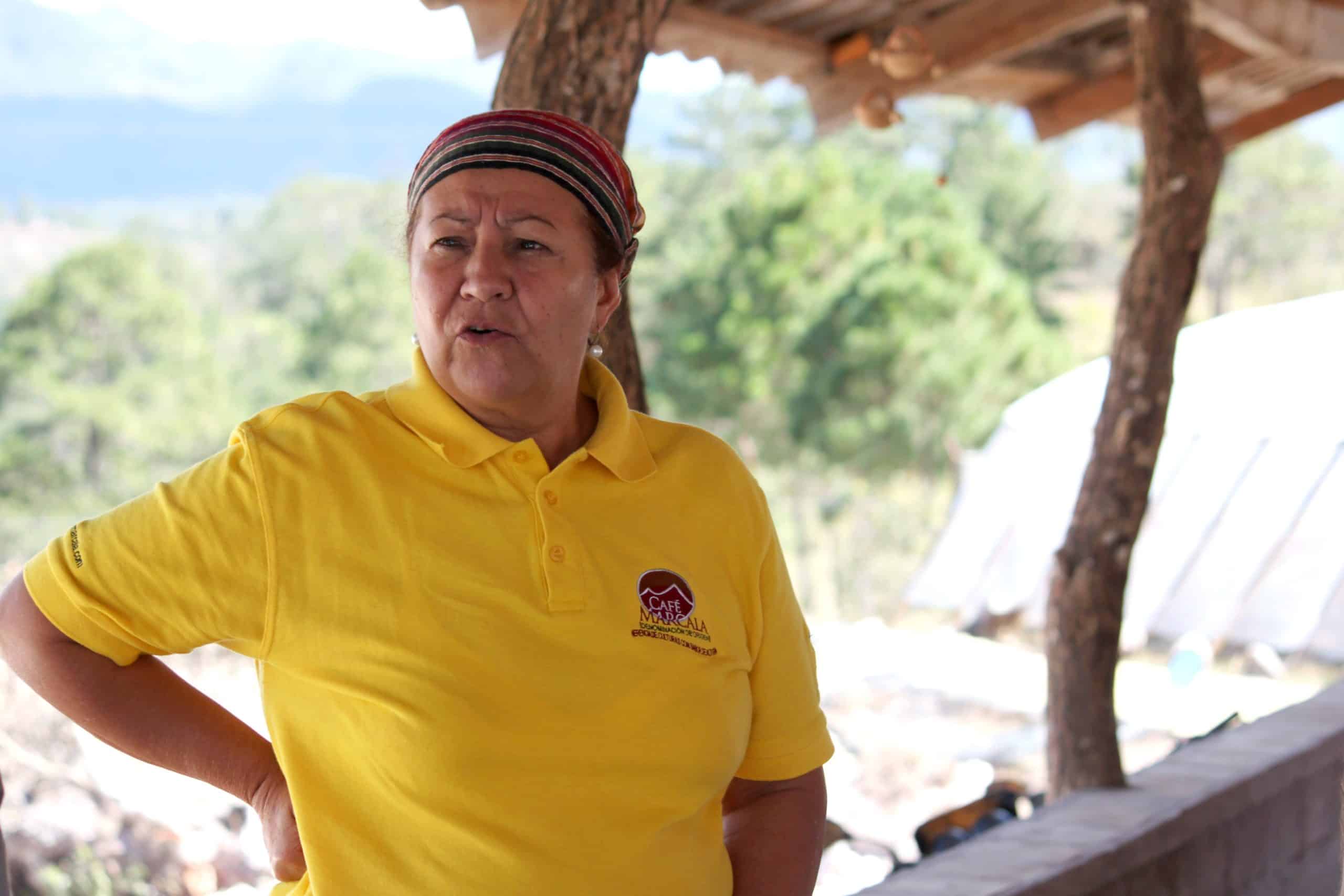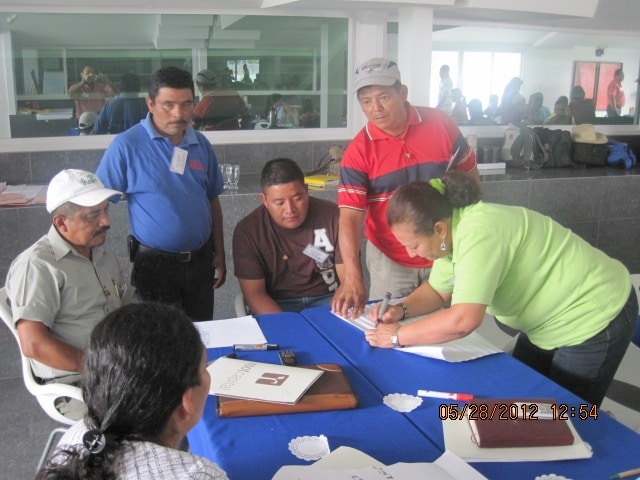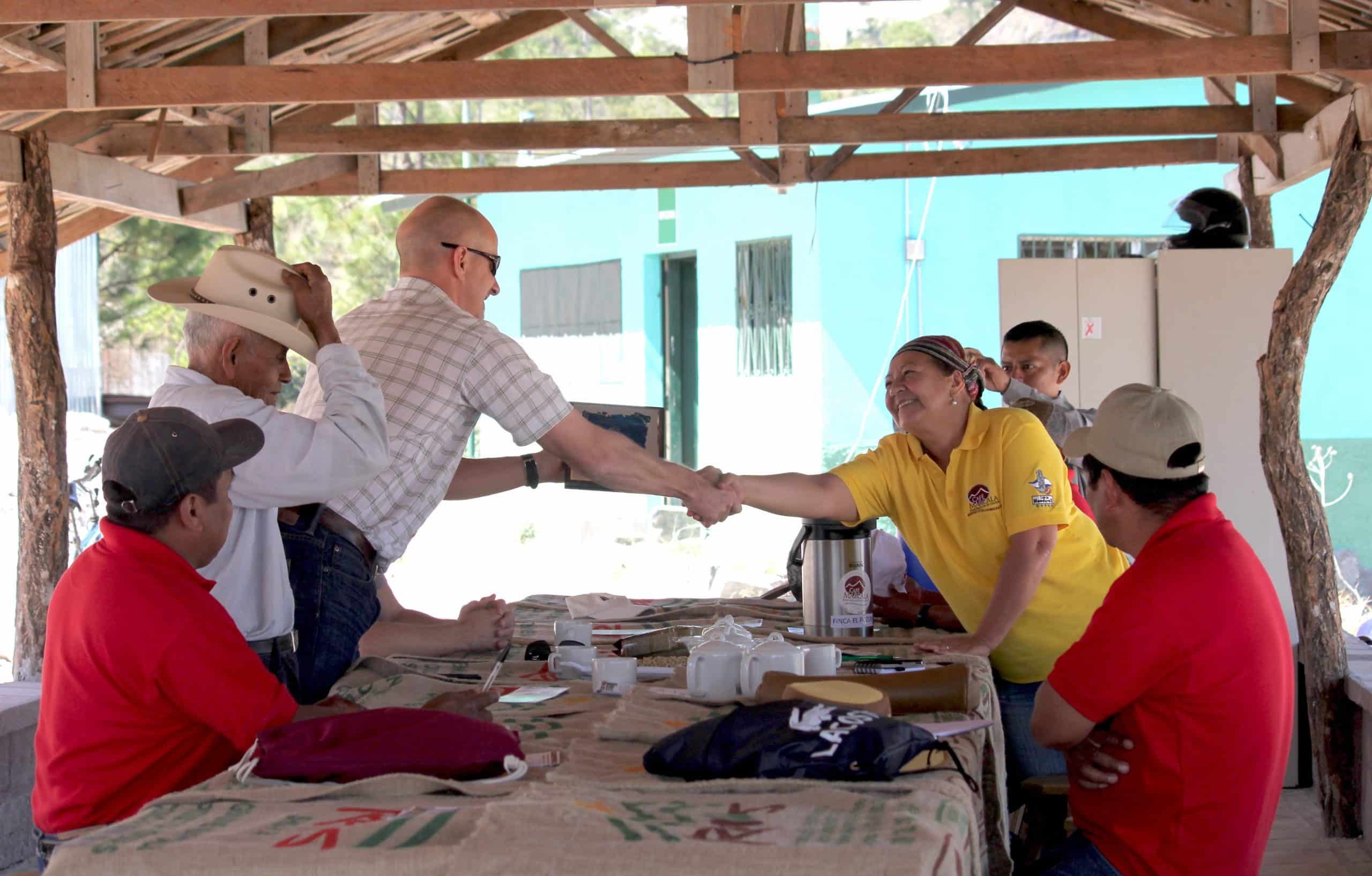
Root Capital CEO Willy Foote visting Cooperativa RAOS in 2013.
In the sleepy, highland town of Marcala, Honduras, there are no street names. To get from Marcala’s church – the town’s main point of reference – to Cooperativa RAOS, the country’s first 100 percent organic coffee cooperative just outside of town, you’d better have one of three things: a detailed map, a local guide, or a healthy dose of luck.
Founding RAOS in 1997 was a little like navigating the unmarked roads to RAOS today. In 1997, after a coffee cooperative called CARMOL shut its doors, a small group of its former members rallied together to start RAOS. With no previous experience or roadmap for success, they left their conventional farming methods behind and tried their hands at adopting sustainable practices to produce organic coffee. As luck would have it, RAOS’s 150 members have been producing and exporting high-quality, organic coffee ever since.
That same luck and natural intuition guided daily business operations at RAOS for several years, too. In the early days, the cooperative established an informal loan fund that allowed members to access credit to make critical investments in their farms and families.
But intuition could only take them so far, and it soon became obvious that in order for the loan fund and cooperative to remain a sustainable and valuable resource for its members, RAOS’s management needed help. Reflecting on this period, the Vice President of the RAOS Board of Directors, a revered and strong-willed woman named Melba Sosa, put it colorfully: “We were getting involved with shamans without even knowing the herbs.”
In 2012, RAOS began receiving personalized on-site financial management training from Root Capital designed to help them improve their financial management capacity — and to bolster their internal loan fund.
“The initial diagnostic test we conducted for RAOS alerted us to significant weaknesses,” said Margarita Chojolan, Root Capital’s regional training coordinator in Central America. “During these diagnostics, we typically look at 15 elements of financial health, and RAOS was deficient in eight of them – from accounting and finances to internal controls.”
Melba Sosa, Vice President of the RAOS Board of Directors
So far, the cooperative has received 40 days of individualized training from Root Capital, and has made significant progress in all areas.
“Over the last three years,” Melba explained, “Root Capital has strengthened our cooperative on professional and personal levels. We look back and say, ‘Wow, we’re not the same business as we were before.’” The combined efforts of every member of the Board of Directors and the dedication of the management team have been critical to RAOS’s success.
Melba has played a key role in implementing improvements — and thus, unlocking RAOS’s ability to take on larger loans from Root Capital. For example, “the loan fund is now self-sustaining, making RAOS healthier financially than it was three years ago,” Margarita explained.
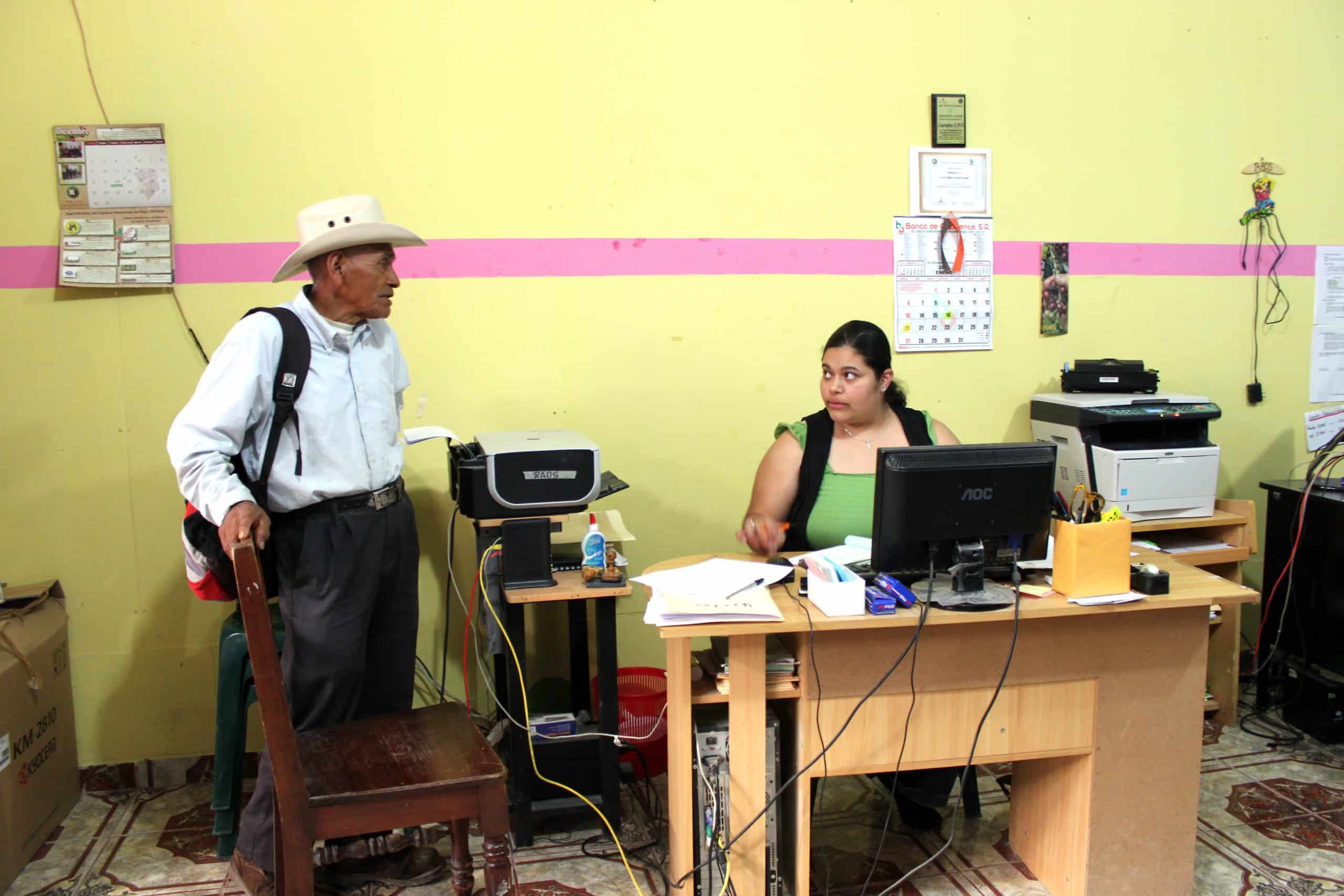
Between 2007 and 2011, Root Capital lent the organization $600,000; since the trainings began in 2012, we’ve been able to lend the organization an additional $3 million, including a five-year, long-term loan to support RAOS’s working capital needs.
“The loan fund within this organization is helping our members improve their lives,” said Melba Sosa.
“And together with Root Capital, we’re moving forward towards something better.”
